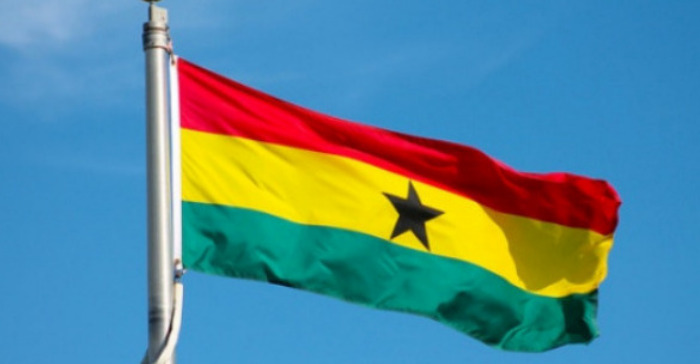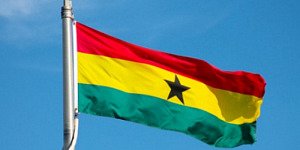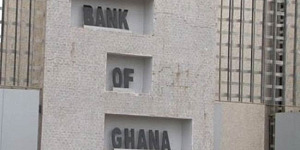Fitch Ratings has downgraded Ghana's Long-Term Foreign-Currency (LTFC) Issuer Default Rating (IDR) to 'C' from 'CC' as well as the issue ratings on outstanding foreign-currency debt. Fitch has also downgraded the issue rating on Ghana's partially-guaranteed USD1 billion notes maturing in 2030 to 'CC' from 'B-'.
Fitch typically does not assign Outlooks to sovereigns with a rating of 'CCC' or below.
A full list of rating actions is at the end of this rating action commentary.
Key Rating Drivers
External Debt Restructuring Announced: The downgrade of Ghana's LTFC IDR reflects the government's announcement of a suspension of payments on sovereign external debt, which Fitch's views as the beginning of a sovereign default process.
Suspension of External Debt Payments: On 19 December, the government of Ghana announced a suspension of payments on selected external debt. The announcement indicates that the suspension will include payments on Eurobonds, commercial term loans, and most bilateral debt, excluding payments on multilateral debt, new debt contracted after 19 December 2022, and debt related to short-term trade facilities. The government is also evaluating certain specific debt related to projects with the highest socio-economic impact for Ghana, which may have to be excluded.
Fitch downgraded Ghana's LT IDRs to 'CC' from 'CCC' on 23 September to indicate the increasing probability of a default event as a result of increasing pressure on external finances and in anticipation that an IMF-supported programme would require some form of debt restructuring. Ghana's already-high debt servicing burden and constrained access to finance both worsened during the successive shocks of the coronavirus pandemic and the Ukraine-Russia war, leading the government to seek IMF support in July 2022.
Partially Guaranteed Notes Included in Restructuring: Fitch has downgraded the issue rating on Ghana's US dollar notes due October 2030 to 'CC' from 'B-'. The notes benefit from a partial credit guarantee (PCG) backed by the International Development Association for scheduled debt service payments up to 40% of the original principal. Fitch had assigned a multiple-notch uplift to the notes to reflect its view that the PCG reduces the bonds' potential for default and increases the possible recovery in the event of issuer default.
On 10 August, Fitch downgraded the partially-guaranteed notes to 'B-' from 'B+', keeping the rating above 'CCC+' as the agency expected that the notes would be excluded from the pending external debt restructuring. However, as the government's announcement does not specify that the partially-guaranteed notes will be excluded from the debt restructuring, we now expect the notes to be included. As a result, we have downgraded the partially-guaranteed notes to 'CC'. Fitch believes that the PCG still has the benefit of higher possible recovery rates for the partially-guaranteed notes.
Local Currency IDR Affirmed: On 8 December, Fitch downgraded the LTLC IDR to 'C' from 'CC' following the announcement of a local-currency debt exchange. The debt exchange was initially planned to be completed on 20 December, at which time we expected to downgrade the LTLC IDR to 'RD'. However, the government has announced an extension of the deadline to exchange domestic debt to 30 December. Fitch has affirmed the LTLC IDR at 'C' but will downgrade it to 'RD' after completion of the debt exchange.
ESG - Governance: Ghana has an ESG Relevance Score of '5' for both Political Stability and Rights and for the Rule of Law, Institutional and Regulatory Quality and Control of Corruption. Theses scores reflect the high weight that the World Bank Governance Indicators (WBGI) have in our proprietary Sovereign Rating Model. Ghana has a medium WBGI ranking at 50.8 reflecting a recent track record of peaceful political transitions, a moderate level of rights for participation in the political process, moderate institutional capacity, established rule of law and a moderate level of corruption.
ESG - Creditor Rights: Ghana has an ESG Relevance Score of 5 for Creditor Rights as willingness to service and repay debt is highly relevant to the rating and is a key rating driver with a high weight. The current rating action reflects Fitch's view that a default event is imminent.
RATING SENSITIVITIES
Factors that could, individually or collectively, lead to negative rating action/downgrade:
- Failure to make scheduled coupon or maturity payments on Ghana's foreign-currency bonds within the grace period would lead to a downgrade of Ghana's LTFC IDR to 'RD'.
- Completion of the proposed debt local-currency exchange would lead to a downgrade of Ghana's LTLC IDR to 'RD'.
- The partially guaranteed notes could be further downgraded depending on the evolution of the debt restructuring.
Factors that could, individually or collectively, lead to positive rating action/upgrade:
- Payment on upcoming commercial debt obligations and/or signs of improved capacity and willingness to continue to do so.
- Evidence that the partially-guaranteed notes will be excluded from the external debt restructuring could lead to an upgrade of the issue rating on the partially-guaranteed notes.





































